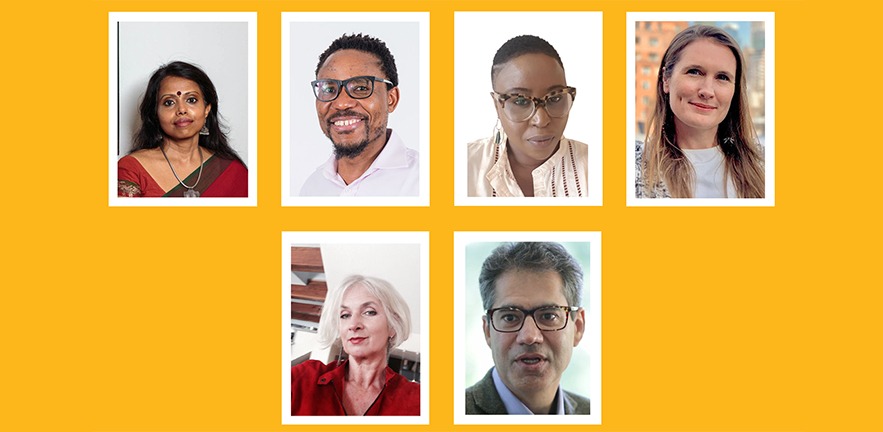by Dr Shonali Banerjee, Research Associate at the Centre for Strategic Philanthropy
This summer, our team at the Centre for Strategic Philanthropy (CSP) launched the #ShiftThePower monthly seminar series, which brings together prominent voices from the Global South and the Global North to discuss the rapidly growing need to shift philanthropic power dynamics.
The #ShiftThePower seminar series builds on the Centre’s 2020 report of philanthropy and COVID-19 (coronavirus), which found that the urgent needs generated by the pandemic created an even more pressing need to shift development philanthropy away from over-reliance on Northern actors. The #ShiftThePower seminars, moderated by CSP’s Executive Director Clare Woodcraft and Academic Director Kamal Munir, bring together diverse and wide-ranging panels that highlight both practitioner and academic perspectives on global philanthropy.
Our inaugural session in June 2021 drove home many valuable lessons for those of us working in or studying philanthropy. The clearest connective note among our panellists was around which voices are heard and valued when it comes to philanthropic programmes and decision-making. Far too often, philanthropists and their organisations fall into the same traps that have long plagued more traditional foreign aid and development assistance programmes. The emphasis on grants is still deeply entrenched, with local recipient organisations in the Global South often unable to rid themselves of a perennial dependence on these schemes. As Dr Bheki Moyo, Director of the Centre for African Philanthropy and Social Investment, noted, civil society on the African continent has been a rich and thriving sector for many decades. So why are international philanthropic entities often so reluctant to provide funding that is unrestricted and long-term?
To further complicate matters, our panellists noted that philanthropists are often reluctant to fund local programmes that support social justice causes—often deemed too politically risky by those at the helm. This further cements another challenging reality for many philanthropic organisations, who often still link their funding with their marketing and public relations endeavours.
This insightful opening seminar opened up numerous lines of inquiry that will be further explored as the series continues over the coming months and can be viewed in full on our YouTube channel.
The second #ShiftThePower panel
After our initial seminar broached the increasingly pressing need for the philanthropic sector to rapidly diversify their funding beyond grant-making, the second panel in July 2021 debated how to operationalise this shift. Bringing together experts from venture philanthropy, impact investing, and large international organisations, the seminar broached the often difficult topic of where things have gone wrong in the philanthropic sector.
Historically, philanthropy has a been a space where best practice and positive results are heavily promoted, but failures, challenges and unsuccessful strategies kept tightly behind closed doors. The panel emphasised the essential importance of philanthropic actors acknowledging where their funding methods can be evolved, and actually taking necessary risks to improve them.
The Asia Venture Philanthropy Network’s CEO Naina Batra noted that a key facet of creating funding structures that can change for the better is ensuring that philanthropic boards are representative and inclusive. If philanthropic board rooms are filled with only Northern faces or Northern perspectives, the capacity to shift power towards localised needs in the South becomes deeply diminished. Rapid innovations in many African and Asian regions have preceded heavy governmental regulations and red tape often found in the North. Because of this, panellists saw an enormous opportunity for new innovations in Global South philanthropy to shape policy, rather than the other way around.
As we move deeper into the ten-part #ShiftThePower series, the discussions will broach key topics including the imperative need for unrestricted funding, building partnerships instead of projects, innovative financing for philanthropy, and perhaps most importantly—the prioritising of local voices.


